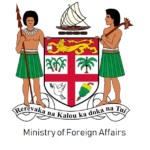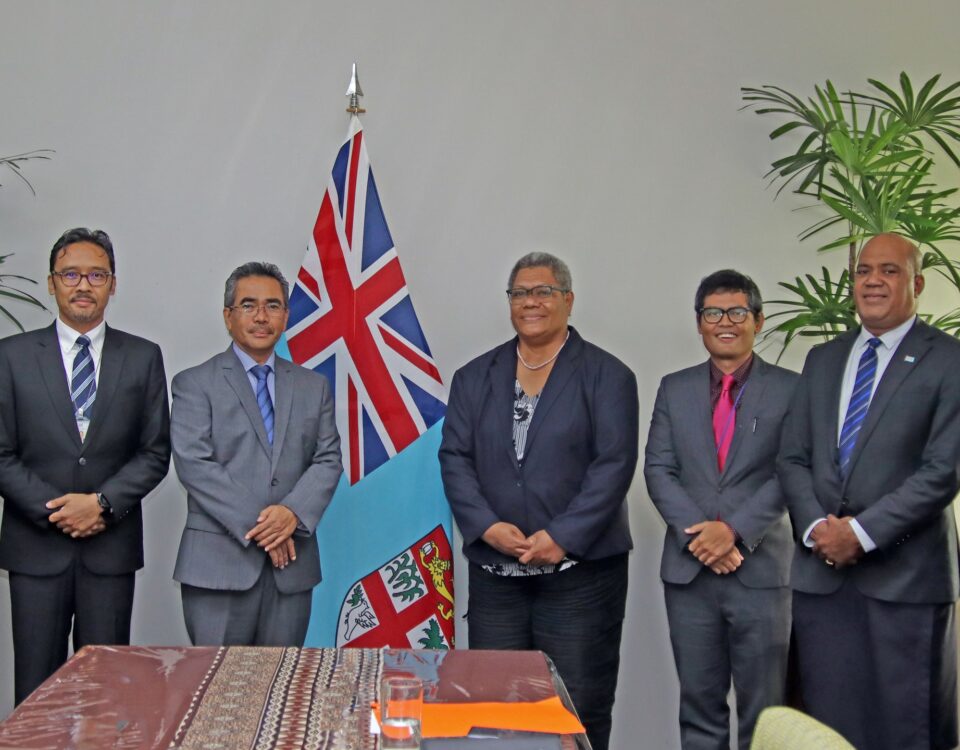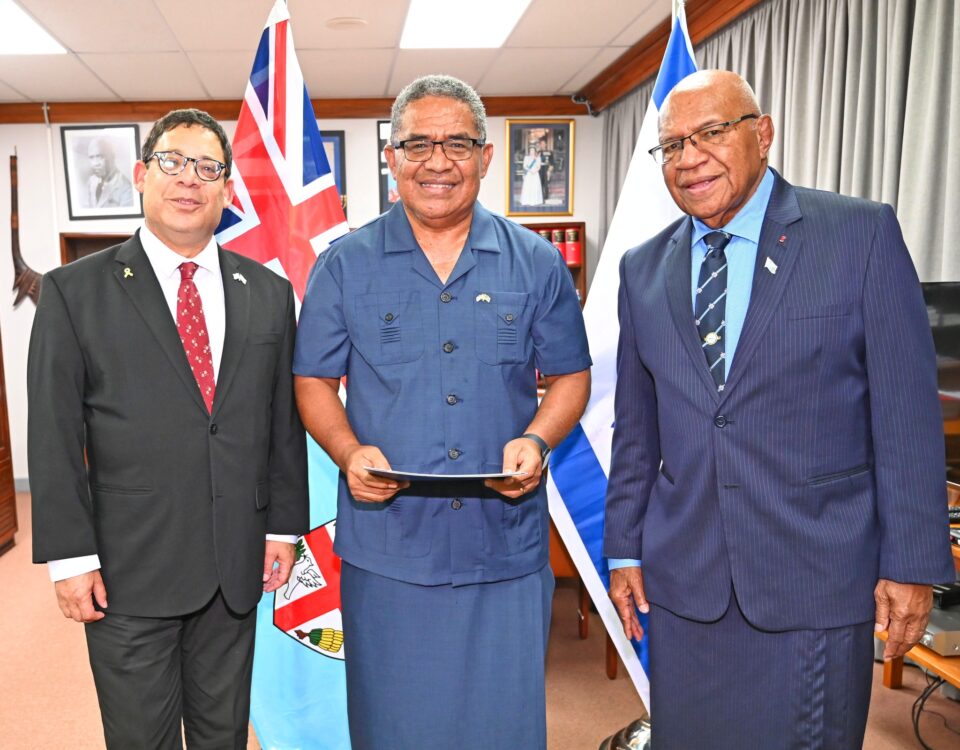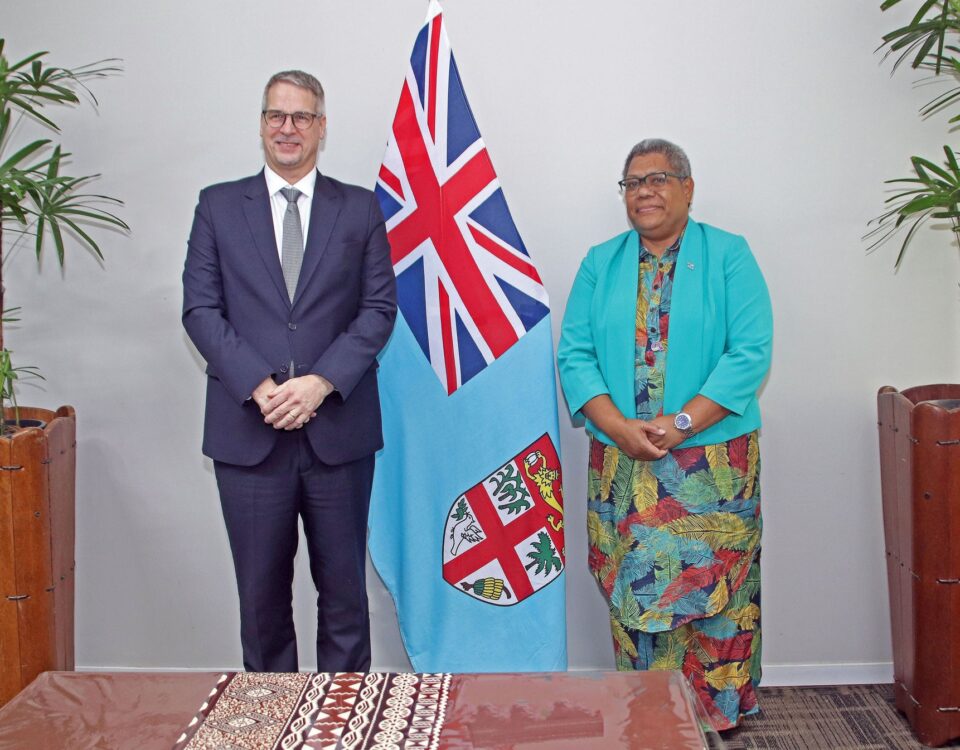
PM Bainimarama’s Statement on the First COVID-19 Case in Fiji
19/03/2020
Statement By The Prime Minister Hon. Voreqe Bainimarama on COVID-19 (23 Jan)
23/03/2020Published On: 21/03/2020
Bula Vinaka.
Our first COVID-19 patient remains in isolation at Lautoka Hospital where he is in stable condition. On Thursday, the 19th of March, I advised the public of a sweeping set of containment measures that was put into place, including an aggressive contact tracing exercise to identify, isolate, and monitor any individuals who came into close contact with this first patient.
As part of this exercise, we immediately identified and isolated eleven members of the first patient’s household at our isolation ward in Nadi Hospital.
These individuals were transported in a secure, hygienic medical vehicle directly to the isolation ward in Nadi Hospital. There was zero contact made with any person in Nadi, or anywhere outside of the Lautoka confined area.
Once isolated, household members displaying symptoms were all tested for COVID-19. Within isolation, the patient’s mother has since tested positive for COVID-19, making this the first locally-transmitted case in the country. She remains in isolation at Nadi Hospital, where she is in stable condition. The patient’s other household contacts –– ranging in age from one to 57 –– also remain in isolation.
The patient’s mother was asymptomatic when first isolated at Nadi Hospital – meaning she was not displaying any symptoms at the time. She developed symptoms soon after entering isolation at Nadi Hospital. This is a good thing, as it greatly reduces the likelihood she had transmitted the virus before her isolation. Regardless, we are widening our contact tracing to identify anyone who she was in contact with within 24 hours prior to being isolated. These individuals will be quarantined and monitored as well.
While the patient’s mother is currently isolated at Nadi Hospital, it is clear she contracted the virus while in the Lautoka confined area. As I’ve already made clear, she was securely and hygienically transported to Nadi Hospital, so she poses no risk to the public in Nadi. Therefore, we will not be widening the boundaries of the Lautoka Confined Area for the time being.
Once again, the Lautoka Confined area is defined as the area spanning from the King’s Road at Matuwalu Junction, to the feeder road at Vakabuli Junction, to the Queen’s Road at Natalau Junction.
This first locally-transmitted case reinforces the need for the current confinement measures to remain in place. We have learned hard lessons from other countries that did not heed to the strongest possible containment measures early. Fiji will not make those same mistakes.
Whether you’re a local or a foreign national, if you’re in the Lautoka confined area, you will need to stay within the confined area. It does not matter if you’re from Mars –– for at least the next 12 days, you will be required to stay in the Lautoka confined area. That is what decisive action demands. Similarly, we’ve even stopped foreign nationals who may have been in direct contact with our first COVID-19-positive patient from boarding any flights given they could pose a threat to other travellers and members of our airport staff and flight crews. Instead, they must remain in Fiji under strict self-quarantine for the 14-day period, after which they will be allowed to return home.
We’ve received a number of requests from individuals seeking exceptions to our strict confinement protocols – no exceptions will be made, not when we’re dealing with an issue of life or death. I’m here with the Commissioner of Police who will answer any questions you may have about what is and what isn’t allowed in the Lautoka Confined Area later.
While the borders of the confinement area remain closed, banks, supermarkets, pharmacies and the other essential industries I’ve already announced, including but not limited to the civil service, FNPF, FRCS, and roading services, will remain open. We are also safely transporting produce to the markets so that residents can access the vital services they need.
Nationwide, gatherings of 20 or more people are not allowed. Gyms, fitness centres, swimming pools and nightclubs will remain closed everywhere in Fiji. Recreational contact sporting engagements are also banned.
Nationwide, the two-week school holiday period has been moved up to begin this Monday, the 23rd of March. We may very well extend the school holiday depending on how this situation develops.
Last night, our national carrier, Fiji Airways, announced the most stringent scale back in the airline’s history, suspending 95% of its international flights. Our travel restrictions remain in full effect, all Fijians and foreign nationals entering the country are required to self-quarantine for 14 days upon arrival to Fiji. Of course, with the vast majority of international flights suspended and the flow of passengers virtually halted, we are not expecting to see very many people arriving at our shores for some time.
As Dr. Aalisha has already explained on a number of occasions, self-quarantine measures mean individuals are required to stay in their homes, or another confined space, for 14 days. If they develop any symptoms, they should immediately contact the Ministry of Health and Medical Services. While at home, these individuals should avoid in-person contact as much as possible.
This second case is a sobering reminder that COVID-19 is extremely contagious, and young people –– while more likely to recover –– can transmit the virus to more vulnerable members of our society. The need for diligence among all Fijians of all ages is critical to containment. Wash your hands with soap and water for at least 20 seconds, because remember –– every time you touch things around you, you could potentially spread the virus. And you may be spreading it to a loved one whose age, immune system or underlying health conditions makes them less resilient than you. If you do cough or sneeze, do it into your elbow or a tissue, and maintain a safe distance of two metres between yourself and others as much as possible.
It is also vital – and I cannot stress this enough – that everyone in Fiji tells the truth to authorities, border agents, and medical staff at our hospitals. If you lie about where you have been, the symptoms you’ve been feeling or when your symptoms started, you could put your life – and the lives of others – in jeopardy, and you will be prosecuted to the fullest extent of the law. We need to work together to contain this virus, and your total honesty and commitment are vital in this fight.
Our contact tracing efforts for both patients will continue. As we know, the first patient was a flight attendant. We are contacting, quarantining and monitoring individuals present in Fiji who may have had contact with the patient, including on flights he serviced and in social settings prior to his isolation. So far, all COVID-19 tests we have conducted on other patients through our contact tracing have come back negative.
As I’ve already announced, we are opening fever clinics throughout the country. These clinics will employ well-trained staff who practice strict procedures to keep people with fevers away from vulnerable people who visit Health Centres, separating them into dedicated spaces specially designed to effectively identify possible COVID-19 cases.
The Ministry of Health and Medical Services is holding daily press briefings and putting out materials in the newspaper and on social media, in all three languages, explaining exactly how the Fijian people can do their part in supporting our nationwide response effort. I’m going to say this again because it’s just so important: Wash your hands as often as possible. Every time you see a sink, wash your hands. Use soap and water. Scrub for 20 seconds. Tell your friends, tell your family members, and help us build a culture of cleanliness to stop this virus dead in its tracks.
Fiji’s health relies on your help in our containment efforts. If you have travelled overseas and feel unwell, immediately contact the Health Ministry on one of these numbers:
In the Central Division call 2219905;
In the Eastern Division call 2219906;
In the Western Division call 2219907; and
In the Northern Division call 2219908.
I’d like to thank our outstanding interpreters for helping keep all members of the public well informed of what we’re doing and how ordinary Fijians can enlist in our nationwide response effort. Well done, ladies.
Speaking of powerful women helping lead this effort, I’ll now hand things over to Dr. Aalisha.





